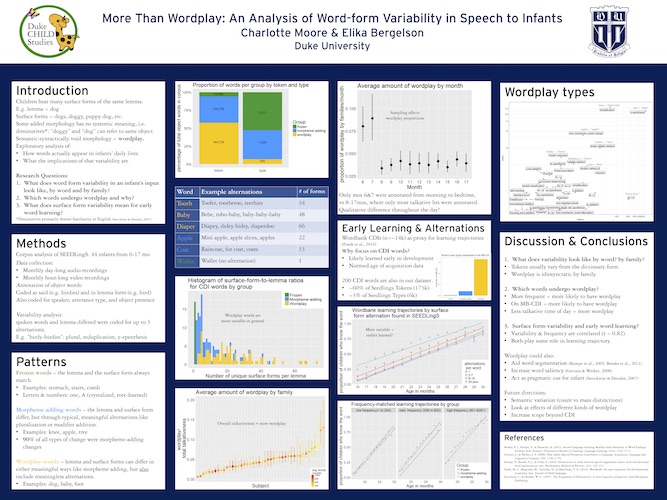More Than Wordplay: An Analysis of Word-form
Variability in Speech to Infants
Moore & Bergelson (2017)
Presented at BUCLD 2017 in Boston, MA
Abstract
Infant-directed speech contains ‘wordplay’ where surface-level changes are semantically and morpho-syntactically uninformative (e.g. dog ~ doggy). To characterize the role of wordplay in speech development, we analyzed >300,000 concrete nouns collected from monthly daylong recordings of speech heard by young infants. Each noun was annotated in its surface and lemma form (e.g. surface: ‘tooferoo’, lemma: ‘tooth’). Nouns fell into three groups: ‘frozen’ nouns appeared exclusively in lemma form, ‘morpheme-adding-only’ nouns had modifier or pluralization marking, and ‘wordplay’ nouns underwent uninformative surface changes. Wordplay occurred only on a small proportion of the word-types in the dataset but included most of the highest-frequency words. Relatedly, wordplay nouns were far better represented on the CDI than frozen and morpheme-adding-only nouns. Wordplay represents little of infants’ input at the type level, but disproportionately occurs in common nouns. As such, wordplay must be accounted for in theories of word-form representation and learning.
